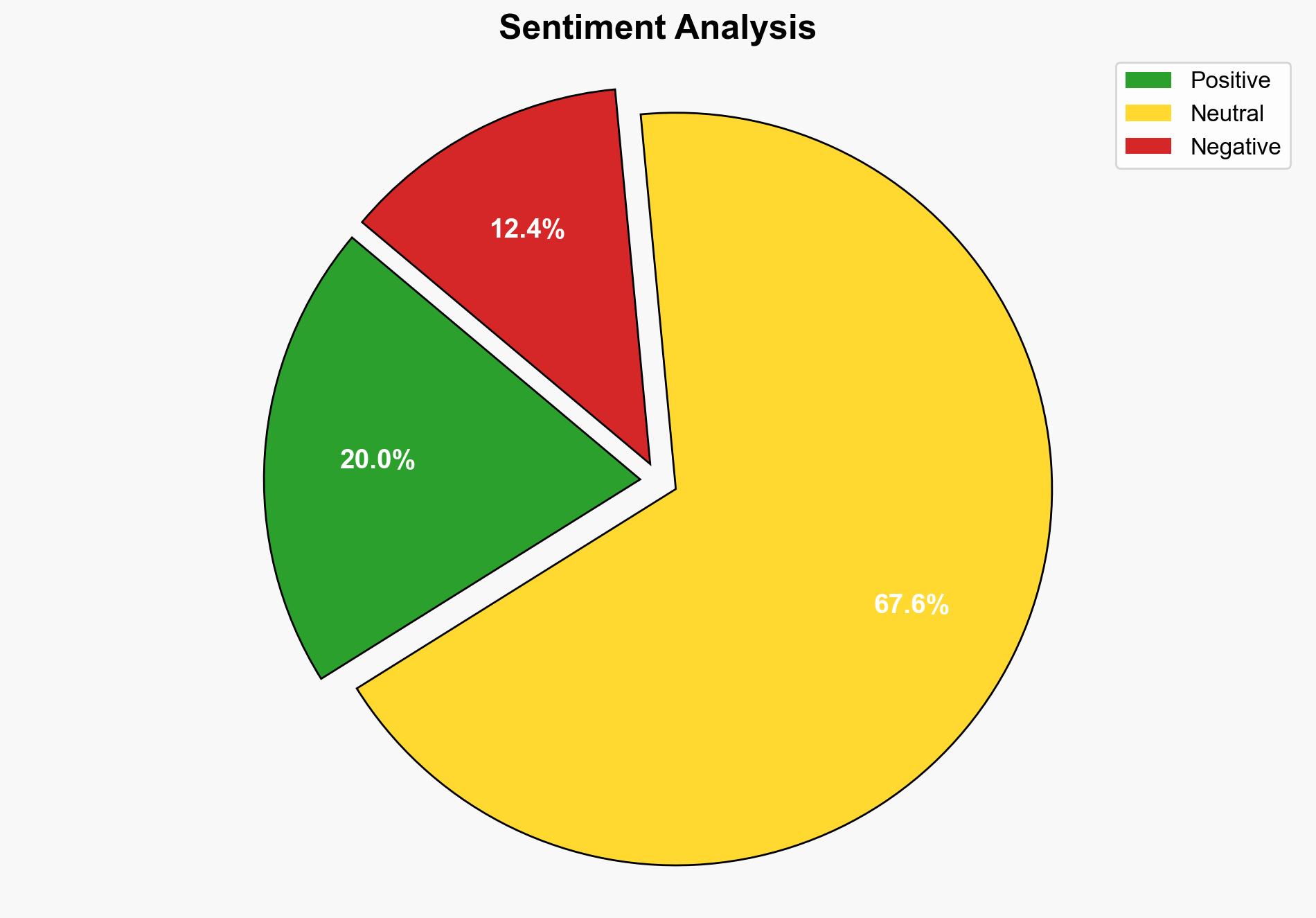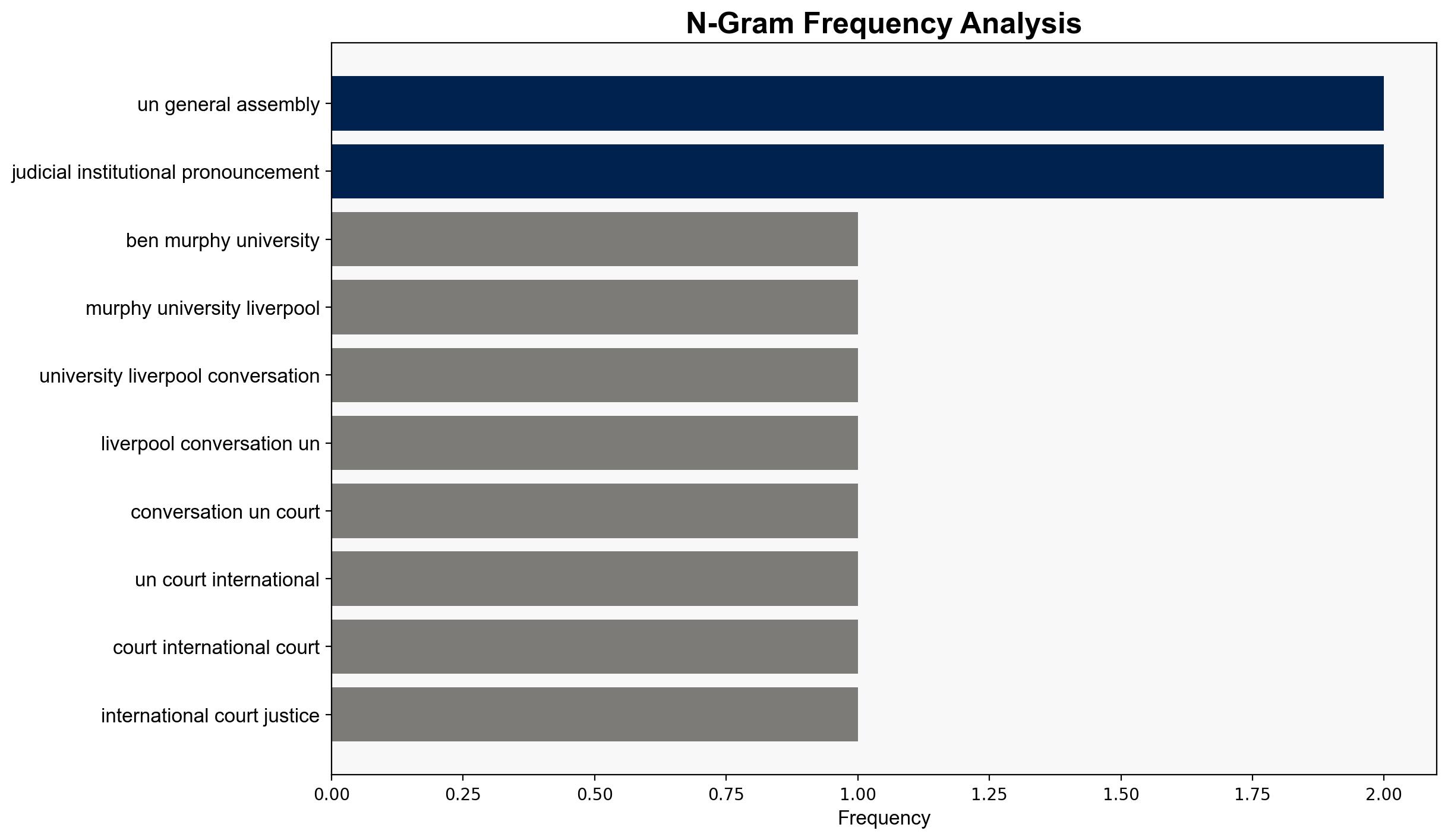The Intl Court of Justice Demands Israel let UN Aid Flow into Gaza but to what Avail – Juancole.com
Published on: 2025-10-30
Intelligence Report: The Intl Court of Justice Demands Israel let UN Aid Flow into Gaza but to what Avail – Juancole.com
1. BLUF (Bottom Line Up Front)
The most supported hypothesis is that the International Court of Justice’s (ICJ) advisory opinion will have limited immediate impact on Israel’s policies regarding Gaza, primarily due to geopolitical dynamics and the lack of enforcement mechanisms. Confidence level: Moderate. Recommended action: Engage in diplomatic efforts to strengthen international consensus and explore alternative humanitarian aid channels.
2. Competing Hypotheses
1. **Hypothesis A**: The ICJ’s advisory opinion will lead to increased international pressure on Israel, resulting in a change in policy towards allowing UN aid into Gaza.
– **Supporting Evidence**: The ICJ’s opinion reaffirms international law prohibiting starvation as a method of warfare and calls for humanitarian relief facilitation.
– **Contradictory Evidence**: Historical precedents show limited impact of similar pronouncements on Israel’s policies.
2. **Hypothesis B**: The ICJ’s advisory opinion will have minimal impact on Israel’s actions, as geopolitical alliances and the lack of enforcement mechanisms will prevent meaningful change.
– **Supporting Evidence**: Israel’s strong diplomatic backing and veto power in the UN Security Council have historically shielded it from international pressure.
– **Contradictory Evidence**: Growing international awareness and advocacy could incrementally influence policy changes over time.
3. Key Assumptions and Red Flags
– **Assumptions**: It is assumed that international legal opinions can significantly influence state behavior. This may overlook the complexity of geopolitical interests.
– **Red Flags**: The consistent rejection of ICJ findings by Israel and its allies suggests a potential blind spot in relying solely on legal instruments for conflict resolution.
– **Missing Data**: Lack of detailed information on potential shifts in international diplomatic strategies or new alliances that could alter the current stalemate.
4. Implications and Strategic Risks
– **Geopolitical Risks**: Continued tension could exacerbate regional instability, potentially drawing in neighboring states and non-state actors.
– **Humanitarian Risks**: Prolonged restrictions on aid could lead to a worsening humanitarian crisis, increasing regional resentment and radicalization.
– **Diplomatic Risks**: Failure to address the situation could undermine the credibility of international institutions and legal frameworks.
5. Recommendations and Outlook
- **Diplomatic Engagement**: Strengthen multilateral diplomatic efforts to build a broader coalition advocating for humanitarian access.
- **Alternative Aid Channels**: Explore non-traditional aid delivery methods, such as leveraging regional partners or NGOs.
- **Scenario Projections**:
– **Best Case**: Increased international pressure leads to policy shifts allowing aid flow.
– **Worst Case**: Escalation of conflict and humanitarian crisis due to continued blockade.
– **Most Likely**: Status quo persists with incremental diplomatic efforts and limited aid access.
6. Key Individuals and Entities
– Benjamin Netanyahu
– Yoav Gallant
– International Court of Justice
– UN Relief and Works Agency (UNRWA)
7. Thematic Tags
national security threats, humanitarian crisis, international law, geopolitical dynamics




